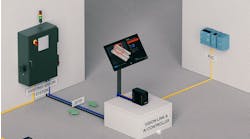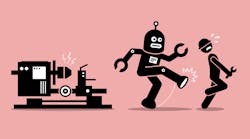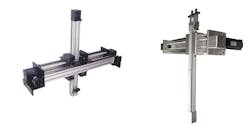New robots are taking over more tasks in the factory and increasing productivity across the line, but data suggests they are not doing so at the cost of manufacturing jobs.
Robots are coming to take our jobs. That's the easy assumption.
When we look at the general landscape of new robots and automation equipment coming on the market, the old fear of a robot takeover seems very real and very close.
But Scott Andes and Mark Muro from the Brookings Institution, argue that that isn't really the case.
Their new report, Robots at Work, takes a close look at a March study out of London’s Center for Economic Research, comparing job growth in manufacturing around the world with growth in the use of robots.
The numbers show that countries deploying more robots than the United States are actually losing fewer manufacturing jobs.
Germany, for example, uses three times as many robots per hour worked as the United States, yet lost only 19% of its manufacturing jobs between 1996 and 2012 after robots were introduced into the workforce.
Korea, France, and Italy also lost fewer manufacturing jobs than the United States, though they enlisted more robots. Conversely, the UK and Australia lost a higher percentage of manufacturing jobs than those countries, while bringing in fewer robots.
If the decline in manufacturing employment was proportional to the increase in robots, writes Muro, "the United States should have lost one-third more manufacturing jobs than it actually did, and Germany should have lost 50% more, while the United Kingdom lost five times more than it should have."
These findings are certainly interesting and they do a lot to relieve some of our dystopian fears, but the question is still out on whether this trend will continue. With new, exciting, generation automation products on the horizon, disruption seems imminent.
It's up to us to find our place in the future that creates.















